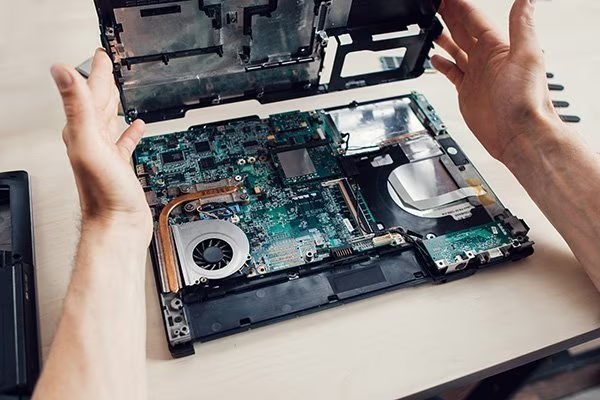get started
Upgrading hardware can breathe new life into an old computer by making your laptop faster and extending its lifespan. But it’s important to make sensible changes to ensure they work well and don’t cost too much.
Discover what your laptop can do
Before you start upgrading, figure out what technology you already have and what the design limitations of your laptop are. You can use tools like CPU-Z or Speccy to view the current components.
Make hardware upgrades a priority
RAM, storage (SSD), and (if possible) the graphics card are the upgradeable parts of your laptop that will have the biggest impact. Prioritize based on your needs, whether you’re on the go, playing games or working on your computer.
How to choose the right RAM
RAM changes are one of the easiest things to do, but make sure they are compatible with your computer. Check how much RAM fits in and whether you need DDR3, DDR4 or DDR5.
Benefits of switching to SSD
Using an SSD instead of an HDD can result in faster boot times and overall performance. In addition, SSDs are more stable and consume less power.
Do you need to buy a new graphics card?
On some computers, it may be difficult or impossible to replace the graphics card. Learn the difference between dedicated and integrated graphics so you can make an informed choice.
Does it make sense to upgrade the CPU?
It is not common to upgrade the CPU in a laptop as it is difficult to do and there are limitations on the motherboard. In many cases, the CPU may not be able to be updated.
How to install something
When installing new parts, be careful not to damage them through excessive contact. A simple anti-static wrist strap and a set of very sharp screwdrivers can go a long way.
Fix common problems after the upgrade
You may be experiencing problems with your system not booting after an update or not recognizing new devices. Some steps you can take to resolve the issue are checking the link and restarting the BIOS.
How to care for your new laptop
Maintenance does not only apply to tools. To get the most out of your new part, make sure your system software is up to date and adjust the settings.
Cost-benefit comparison
Think about the cost of buying a new laptop versus the cost of updating it. Strategic upgrades can often save you more money than buying new equipment.
Where to buy laptop parts
Choose parts from reliable sellers to avoid purchasing counterfeit or mismatched parts. Check out deals online and on local sites to get the best prices.
Professional help and self-upgrade
Many changes you can make yourself, but others may require professional help, especially if they involve wiring or taking something apart in complicated ways.
Prepare your laptop for the future
When choosing an upgrade that will last for many years, consider your software needs now and the software needs you think you will have in the future.
In brief
Choosing the right upgrades for your laptop can help it run faster and last longer. Think about what you need, prioritize change, and don’t be afraid to ask for help when you need it.
Frequently asked questions after termination
What should I do first to improve my laptop?
First, take a look at the tools you already have to see what improvements your laptop can handle.
If I upgrade my laptop, should I get new protection?
According to the manufacturer it is possible and the way it has been improved. First review the terms of your warranty.
How much RAM should I try to get?
For most people, 8GB will be sufficient, but 16GB or more is best for heavy processing or gaming.
Will you need to buy a new battery for your laptop when upgrading?
If your battery’s performance has deteriorated, an upgrade can keep it working optimally.
Can I still update my operating system after upgrading my hardware?
Yes, it’s generally a good idea to update your operating system to get the most out of your new gear.




